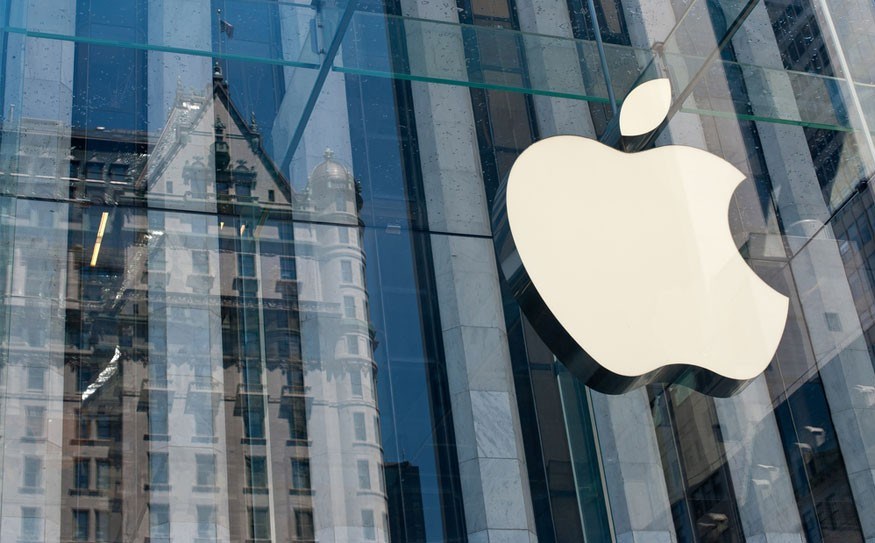For anyone who has ever thought of the stock market as a reasonable, rational place, I give you Apple. Despite huge sales, fawning reviews for its products and general dominance in a number of categories, the company's stock has dropped 40 per cent since September 2012 — roughly $420 now, down from $705 seven months ago.
There are a lot of reasons why shares could be expected to drop a little: Samsung overtook Apple in the smart phone market recently and the tablet market has almost caught up; Apple has more credible competition in the phone market with BlackBerry getting it together and Microsoft diving in with Windows Phone; Apple's award-winning laptops are ridiculously expensive next to the competition while they seem to have given up on the desktop market completely.
Apple's next product is rumoured to be an "iWatch," but nobody seems all that excited about it. As well, the company has been diving back into chip development, which is worrying for everybody who remembers Apple's switch to Intel processors and its habit of making their own technology obsolete.
Apple's stubbornness when it comes to limiting variety in their lineup of products also seems to be biting them hard. Samsung is releasing every size and form factor of phone and tablet they can produce on no fixed release schedule I can see, while iPhone still only comes in one size and releases updates once a year. And even when Apple did listen to the market's demands and offered more choice with the iPad Mini — to rave reviews, as always — critics were quick to point out that the company, used to leading by design, was now just following the trends.
But there are so many good reasons why it's too early to write Apple off, including $135 billion that's sitting in the bank right now just waiting to be spent on research and development or acquisitions. They could easily increase shareholder dividends for a few quarters while innovation catches up, something that would send investors running back to buy Apple shares.
Although the competition had to catch or surpass Apple in innovation at some point, investors that have written off Apple in the past have paid for it — 10 years ago, March 2003, Apple's stock was worth $6.97 per share. If you stuck with the company you would have been awarded by a hundred-fold increase in your stock value (as of September 2012). A thousand dollars invested would have been worth a hundred thousand.
And while the loss of Steve Jobs was devastating, don't forget that we're talking about a massive, well-financed company that can afford the best of every kind of talent in the world, not some 21st century technology cult that lost its charismatic leader.
The reality is that we've hit a kind of innovation trough on every front where technologies are relentlessly improved and refined but not created the same way that Apple reinvented mobile audio with the release of the iPod. We get ideas for fringe products like smart watches that scare off shareholders, but there's nothing that fundamentally changes anything.
Until somebody figures out the next big thing, maybe shareholders should relax. While Apple's growth is slowing, it's still a growing and profitable company. Market share isn't everything if you have to sacrifice your reputation to gain it (e.g. targeting discount markets), and Apple was a profitable company even when it was a fringe player with five per cent of the home PC market.
Time out for security
In the past I've recommended that people change their passwords every three to six months, and make longer passwords using phrases that they can remember. My last naming convention revolved around the names of bike trails; before that it was Star Wars references. The most important passwords to update are email, social networks and online bank accounts.
As for your computer, Windows 7 users and earlier should have Windows Security Essentials installed by now, as well as at least one antivirus program — Malwarebytes (www.malwarebytes.org) is a good one and great for restoring your computer. Windows 8 comes with Windows Security Essentials built-in, but download another program to be safe.
Apple computers are also vulnerable, and right now Intego Virus Barrier and Norton AntiVirus get the highest marks for virus protection.
As well, if you have a laptop or desktop computer with a built-in camera, consider investing in some electrical tape to cover it when it's not in use. The reason? The use of remote administration tool (RAT) software has been growing recently, allowing creeps and criminals to watch you through the web and access your files. If you're lucky, a ratter will expose his incursion by taking over the computer while you're using it. If you're unlucky you can be watched and recorded, or have personal files stolen or deleted.
RAT tools can get into your computer a number of ways — torrent downloads, email attachments, attachments on social networks or chats, virtually any kind of file you open. The best response? Right now it's Malwarebytes.




